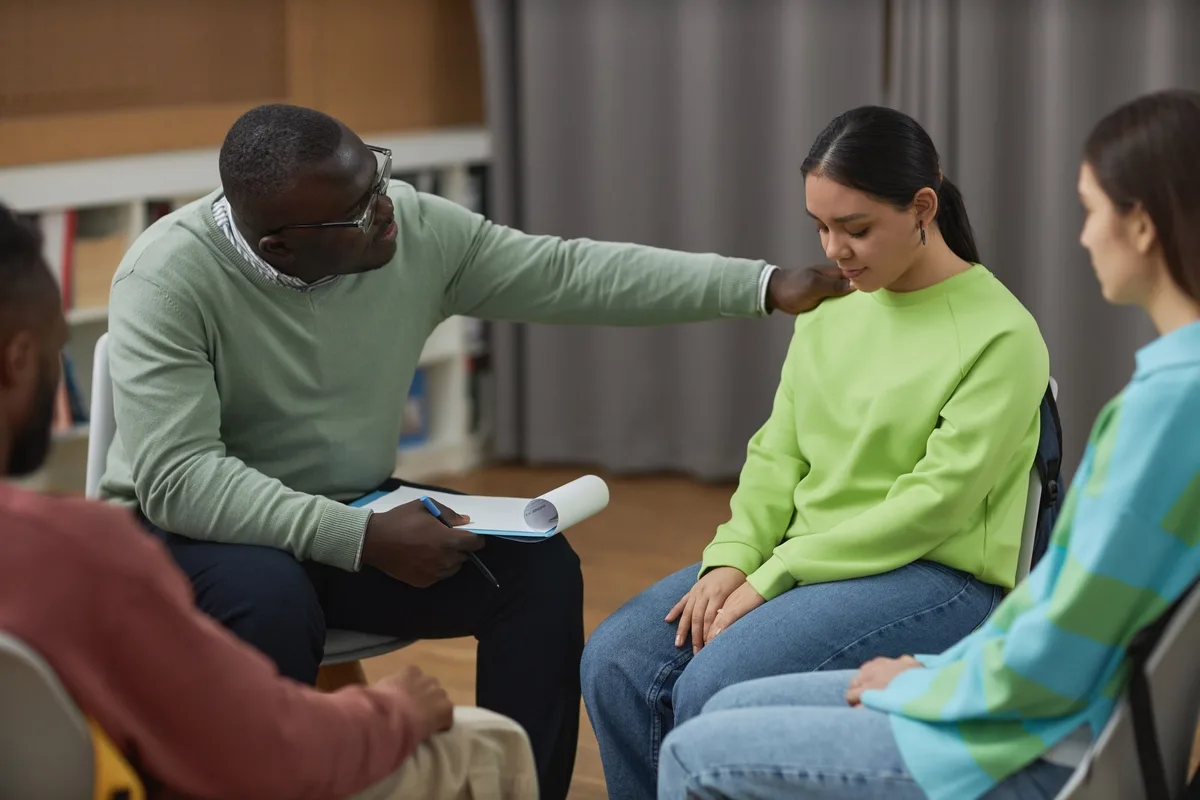24/7 Helpline:
(866) 899-221924/7 Helpline:
(866) 899-2219
Learn more about OCD Treatment centers in Randolph County

Other Insurance Options

Molina Healthcare

Health Partners

Horizon Healthcare Service

Medical Mutual of Ohio

Ambetter

Absolute Total Care

Access to Recovery (ATR) Voucher

ComPsych

Optum

MHNNet Behavioral Health

WellPoint

Aetna

MVP Healthcare

Providence

PHCS Network

Group Health Incorporated

Sutter

American Behavioral

GEHA

EmblemHealth

Triad Therapy
Triad Therapy is an outpatient treatment specializing in mental illness and addiction issues. Servic...

Randolph Fellowship Home
Randolph Fellowship Home, located in Asheboro, North Carolina, is a nonprofit substance use disorder...

Daymark Recovery Services
Daymark Recovery Service, situated in Asheboro, North Carolina, is a reputable dual diagnosis behavi...


























































ASG Services
ASG Services is a private rehab located in Asheboro, North Carolina. ASG Services specializes in the...

Randolph Fellowship Home – Mangum House
Randolph Fellowship Home - Mangum House is a private rehab located in Asheboro, NC. Randolph Fellows...

New Beginnings Youth Facility
New Beginnings Youth Facility is a private rehab located in Ramseur, North Carolina. New Beginnings ...

ADS Alcohol & Drug Services
ADS Alcohol & Drug Services is a CARF-accredited substance abuse rehab center in Asheboro, NC that p...

Behavioral Associates of Asheboro
Behavioral Associates of Asheboro is a private rehab located in Asheboro, North Carolina. Behavioral...

AA – Alcoholics Anonymous
AA – Alcoholics Anonymous is a non-profit rehab located in Asheboro, North Carolina. AA – Alcoholics...

Randolph County Day Reporting Center
Randolph County Day Reporting Center is a public rehab located in Asheboro, North Carolina. Randolph...


























































